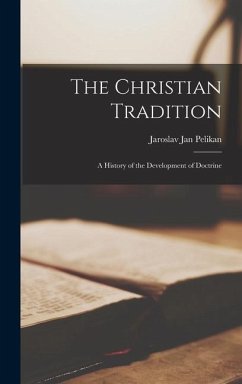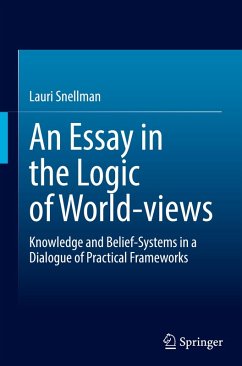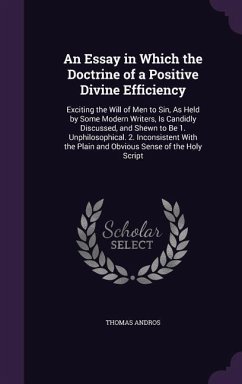
An Essay on the Development of Christian Doctrine
Versandkostenfrei!
Versandfertig in 1-2 Wochen
16,99 €
inkl. MwSt.

PAYBACK Punkte
8 °P sammeln!
John Henry Newman (1801-1890) was a prominent figure in the religious history of England during the 19th century becoming nationally recognized by the mid-1830s. Originally an evangelistic Oxford scholar and clergyman in the Church of England, he was a leader in the Oxford Movement. This inspiring grouping of Anglicans wished to return the Church of England to the many Catholic beliefs and forms of worship. Newman left the Anglican Church and converted to Roman Catholicism, eventually acquiring the rank of Cardinal by Pope Leo XIII. Development of doctrine is a term used by Newman to describe ...
John Henry Newman (1801-1890) was a prominent figure in the religious history of England during the 19th century becoming nationally recognized by the mid-1830s. Originally an evangelistic Oxford scholar and clergyman in the Church of England, he was a leader in the Oxford Movement. This inspiring grouping of Anglicans wished to return the Church of England to the many Catholic beliefs and forms of worship. Newman left the Anglican Church and converted to Roman Catholicism, eventually acquiring the rank of Cardinal by Pope Leo XIII. Development of doctrine is a term used by Newman to describe the way Catholic teaching has become meticulous and explicit over the centuries. "An Essay on the Development of Christinan Doctrine" presents Newman's idea of development of doctrine to defend Catholic teaching from attacks by Anglicans and Protestants who saw certain elements in Catholic teaching as corruptions or innovations. To him, this doctrine was the natural and beneficial consequence of reason to reveal a truth that was not obvious at first.












